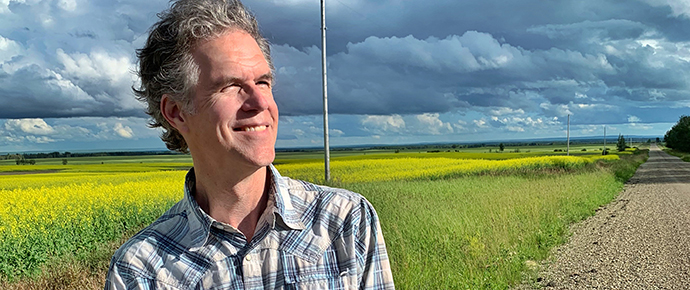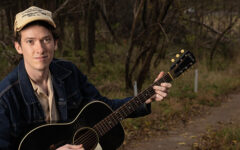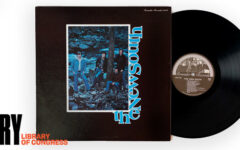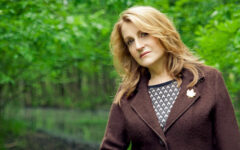
The pandemic is even taking its toll on Mr. Bluegrass Manners. The last time I saw him, he was playing the Flatt & Scruggs Carnegie Hall album in LP form over and over and just staring at the record as it went around the turntable. When it came to the tune just labeled Fiddle and Banjo, he would blurt out Wild Horse on Stony Point! and that’s all he would say. I was more than a little worried. This week, though, he seems to be back to his old polite self, and he expressed his desire to take questions from Bluegrass Today readers once again.
Here are a few that have been selected somewhat at random from the inbox:
Dear Mr. Bluegrass Manners,
I’m a DJ who has been hosting a bluegrass show on our local radio station for over 15 years (Bluegrass In An Unpopular Time Slot), and I have a caller who keeps calling me to complain that on some of the older recordings the bands weren’t tuned to standard concert pitch. He says it’s frustrating to play along with them and wonders why these artists didn’t take the time to get into tune properly. Does he have a finely-tuned ear or is he just rude? What should I tell him?
— Irritated in Indiana
Dear Irritated,
He’s just rude. Well to clarify, I would say one call about this from a listener is fine. Anything more than that displays more rudeness than it does any kind of admirable pitch-sensitivity. You might explain that in the early days of bluegrass music recordings (before the era of penny whistle overdubs and digital editing), band tuning was more relative. Someone might have generated A440 with a tuning fork or even a studio piano, and everybody tuned to that and each other. Some bands (like Flatt & Scruggs in the early 1950s) tuned about half a step sharp on purpose so that the key of E, for example, really became the key of F. They just liked the way the instruments sounded that way, and they could never have anticipated people sitting around years later, listening to your show and getting annoyed that they might have to retune to play along.
— MBM
Dear Mr. Bluegrass Manners,
I’m a professional bluegrass musician, and back when we were all still playing shows, I played a lot of bars. I became frustrated by how much people talked over the music, so at first I tried to turn our volume up more and more. What I found, though, was that the people just talked louder and louder. Finally I resorted to stopping mid-song and shaming the loudest talkers from the stage. Sometimes I’d even pretend I was part of their conversation by chiming in about whatever they were talking about. The net result was making people angry, and eventually the management stepped in and blamed me. Is this just? Did I take the right approach?
— Don’t Mind Me in California
Dear Don’t,
Well there’s no doubt that talking over people’s music is bad bluegrass manners. However, it’s important to remember the context: you’re playing in a bar, not a Benedictine monastery (those gigs are hard to come by). Some people are there for the social aspect more than the music, and some conversing is bound to happen. Others are barely aware there’s a band playing at all. That’s the difference between a bar and a “listening room.” The upside is that you’re getting paid (I hope), and no one is scrutinizing your music too much, so it’s a great situation for practicing and trying new music and arrangements. If someone is being unusually loud, you might try just being silent yourself for about 30 seconds so that person’s talking becomes obvious to everyone else in the room. They may clue in, or they may be very drunk and will just keep on talking in their outdoor voice. Increasing your volume or confronting your audience is never a winning strategy, and can sometimes result in injury to you. Here’s some good news: since we’re all stuck at home doing livestreams, you can just enjoy the fact that you’re now performing thru a medium in which you can’t hear or even see your audience at all. When all this is over, you may have a newfound appreciation for the noisy bar and the inattentive audience members.
— MBM
Dear Mr. Bluegrass Manners,
I go to a weekly jam session hosted by our local bluegrass association, and there’s one guy who insists on constantly correcting my lyrics when I sing, sometimes in the middle of the song. For example, he says that in the chorus of Blue Ridge Cabin Home it should be “When I die won’t you bury me in the mountains” instead of “on the mountain.” He also nitpicks my lyric choices for Little Maggie (“It’s 5-string, not banjo!”). I find this annoying and it detracts from my jam session enjoyment. Am I right to be bothered, and how important are the right lyrics in this situation?
— Overcorrected in Oregon
Dear Overcorrected,
Well, he’s actually right about the Blue Ridge Cabin Home lyrics, but in the case of Little Maggie, that’s an old traditional song in the public domain, handed down via the aural tradition, so there are really no “correct” lyrics that would hold up in Bluegrass Lyrics Court. That’s all beside the point anyway because you know what? It’s a jam session. If you want to substitute Leonard Cohen lyrics for the usual ones in Will the Circle Be Unbroken, it’s your right to do it. Or you could work the word “serotonin” into every song. You’ll just be thought of as eccentric. Enjoy your session and ignore the lyric know-it-alls.







